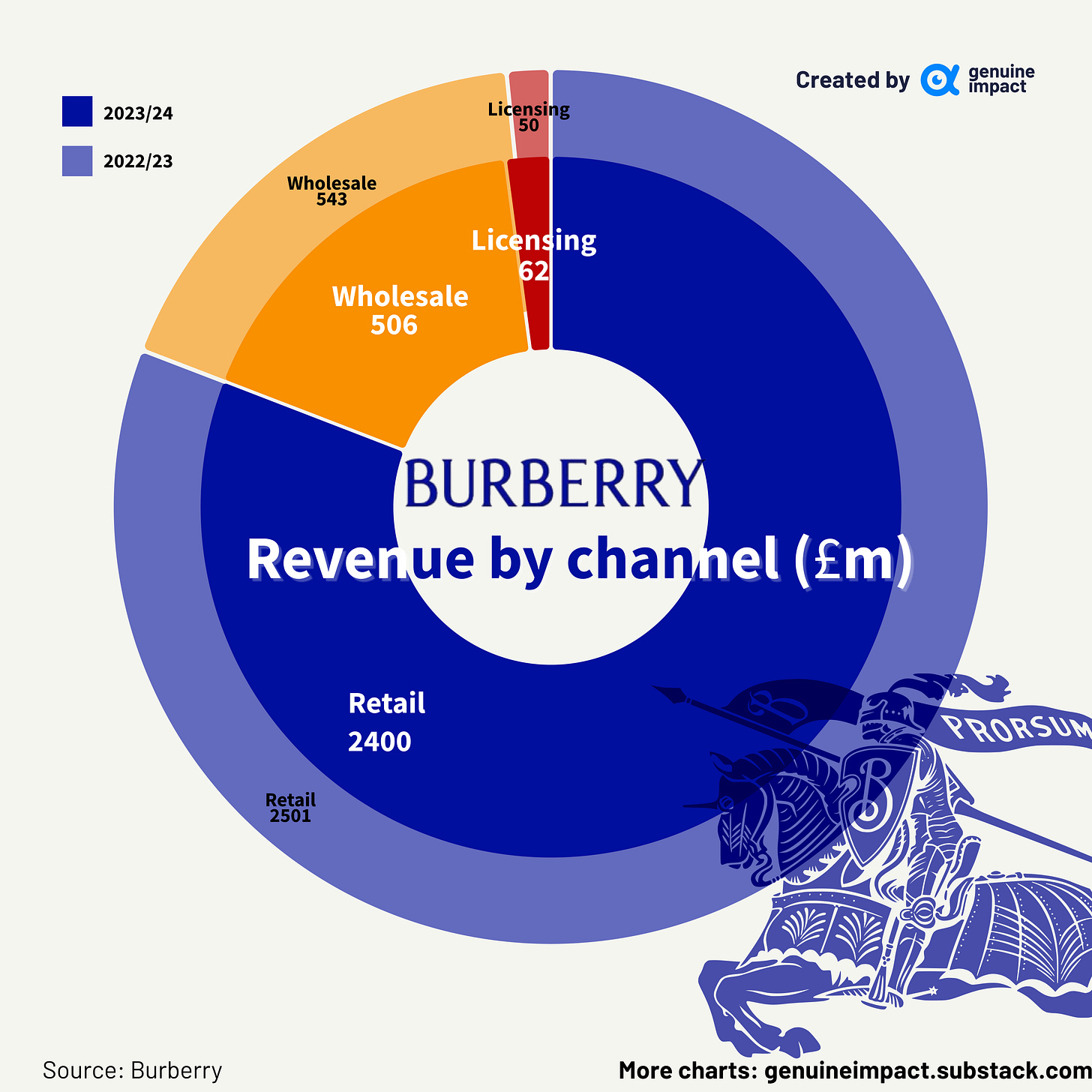Why Burberry is Seriously Struggling?
This year, its stock price has dropped by more than 53%. In Sep, Burberry Group Plc dropped out of the UK's FTSE 100 Index.
Burberry, once known for its iconic trench coats and classic check print, has been facing some serious challenges. This year, its stock price has plummeted by more than 53%. In Sep, Burberry Group Plc dropped out of the UK's FTSE 100 Index, ending the luxury-goods maker's 15-year stay in the UK blue-chip gauge.
Despite its rich history and recognition, the brand has been struggling to find its place in the fast-paced luxury market. Here are 3 key reasons why Burberry is having a tough time and what we can expect with their new CEO.
Confused Brand Identity
Burberry’s biggest problem lies in its unclear brand identity. Known for dressing the English upper class with its classic camel, red, and black check print, the brand took a drastic turn in 2022 when it hired British designer Daniel Lee as its new Chief Creative Officer. Instead of continuing Burberry’s traditional check print, Lee introduced a new brand color—blue—and designed a blue flag logo that’s difficult to instantly recognize as Burberry.
Burberry has shifted away from its bestsellers, like the classic trench coat, towards more avant-garde looks that don’t appeal to a broad market. This shift has left many loyal customers confused and unimpressed.
Additionally, in an effort to increase profits, Burberry has shifted focus from its iconic trench coats to handbags. However, it has struggled to compete with luxury giants like Louis Vuitton and Gucci. At the same price point, most customers prefer Louis Vuitton, which has over 100 years of history in crafting luxury handbags, over Burberry. This shift has alienated some loyal customers who were accustomed to Burberry’s timeless trench coats and accessories.
Over-reliance on Discount Channels
Unlike top-tier brands like Hermès or Chanel, Burberry leans heavily on outlet stores and discounts, which make up over 17% of its sales in 2024. While this might bring in revenue, it damages the brand’s luxury image. Luxury brands are all about exclusivity, and discounts dilute that. Customers who once sought the prestige of full-price Burberry items are now more likely to wait for sales or head to outlet stores. This reliance on discounts not only weakens the brand but also confuses its position in the market.
Burberry finds itself in a tricky situation: outlets are profitable, but they also prevent the brand from fully committing to its high-end image.
Struggles Across the Luxury Industry
Burberry's challenges are not unique—many luxury brands have been struggling, especially in key markets like China🇨🇳. Once a driving force in global luxury consumption, the Chinese economy has slowed down significantly. Economic uncertainty has led to what experts are calling "luxury shame," where even wealthy consumers are hesitant to flaunt their wealth. Rising return rates and heavy discounts have plagued the sector, and Burberry is no exception.
This year, Burberry's competitors have also faced significant losses. LVMH’s stock is down 12.8%, while Gucci-owner Kering has seen a 40% decline. The entire luxury market has been experiencing a downturn.
What’s Next with the New CEO?
In July 2024, Burberry appointed Joshua Schulman as its new CEO. Schulman has previously worked with brands like Michael Kors and Coach, but his experience may not align with Burberry’s aspirations to position itself as a top-tier luxury brand. His appointment suggests that Burberry may be attempting to adopt lower price points and more mass-market designs. However, initial reactions to the new CEO have been less than favorable, with Burberry’s stock sinking 17% to levels not seen since 2010 following the announcement.
From an investor’s perspective, Burberry is at a critical moment of uncertainty. Given its current market performance and ongoing struggles, investors need to exercise caution. While short-term volatility in the stock price may continue, long-term investors should closely watch Burberry’s strategies in category expansion, market repositioning, and brand rebuilding. How Burberry finds its voice in an increasingly competitive market will be key to its future success.
Created by Wendy







